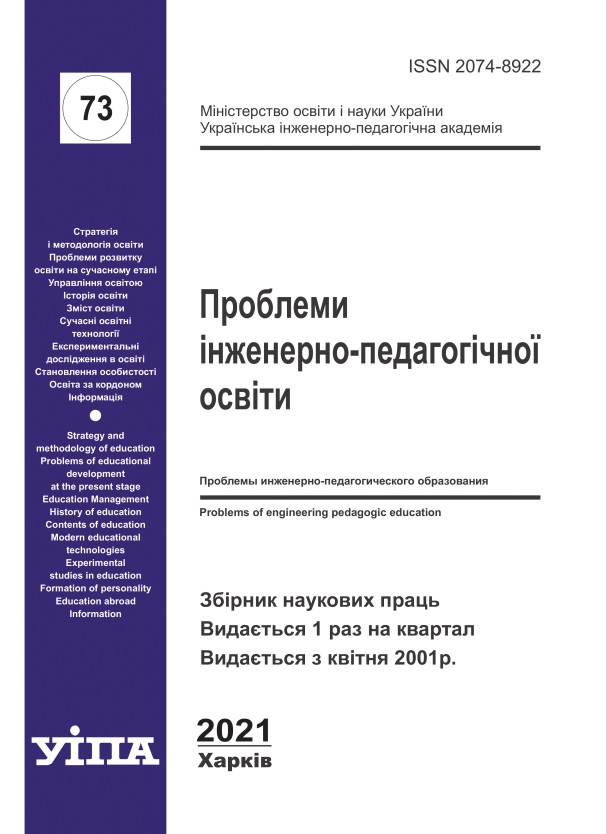Abstract
The article describes that the integration of children with disabilities into society requires the
development of new theoretical approaches to their education, upbringing and organization of all life
activities, resulting from an in-depth analysis of modern problems of special education both in our country
and abroad. It was found out that the preparation of future teachers for correctional and rehabilitation work
with children with disabilities is a component of their professional development. The author analyzes the
problems of forming the readiness of future teachers to work with this category of children from the point of
view of modern foreign and domestic approaches and substantiates the main directions of their use in the
study of the features of specialists ' readiness for professional activities in the field of correctional education.
The author proved that children with disabilities are significantly limited in life, which in turn
significantly affects social adaptation, which causes developmental disorders, complications in self-care,
communication, training, and mastery of future professional skills. This is possible under the condition of
creating a system of early social rehabilitation of children of this category in the implementation of
professional, medical and social rehabilitation of persons with disabilities. Necessary for successful and
effective work on social rehabilitation of children with visual impairments is the intensification of work to
create conditions for the adaptation of children with visual impairments in public, social and cultural life.
Governmental and non-governmental organizations are working together to create counseling and
educational centers for parents raising children with special needs, and communication clubs. The essence of
the concept "social rehabilitation" has been clarified; it is defined as the final result of rehabilitation
activities, which can be achieved only in a combination of actions within the framework of all the abovementioned directions, because it is during their implementation that a true and full restoration of the abilities
of a child with visual impairments to social functioning is possible. The expediency of using physical therapy
to prevent, reduce and eliminate existing deviations and disorders in physical development and motor
readiness of blind children and children with partial visual impairments, which will promote the development
of spatio-temporal components of motor actions, coordination, accuracy and agility. It was found that the
process of social rehabilitation of visually impaired children includes four stages of social rehabilitation:
family (up to 7 years), school (7 - 18 years), labor (until retirement age), and post-employment. Interaction
and cooperation with parents of visually impaired children allows to further coordinate work with teachers in
the direction of strengthening such children's independence, assistance in moving, acquainting them with
atypical buildings outside the education institution. It was found that rehabilitation measures for children
with disabilities should be expanded through the development of social rehabilitation, which should begin
early enough so that children in this category at an early age can maximize their natural abilities without
separation from family and in a timely manner to become most fully integrated into society.

This work is licensed under a Creative Commons Attribution-NonCommercial-NoDerivatives 4.0 International License.
Copyright (c) 2023 Problems of Engineer-Pedagogical Education


